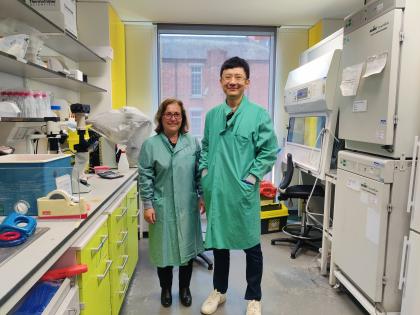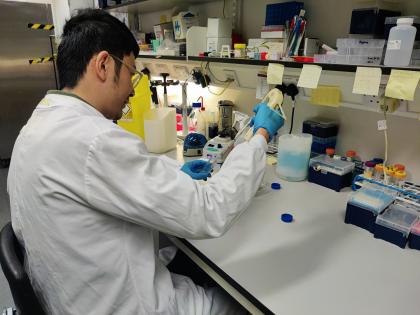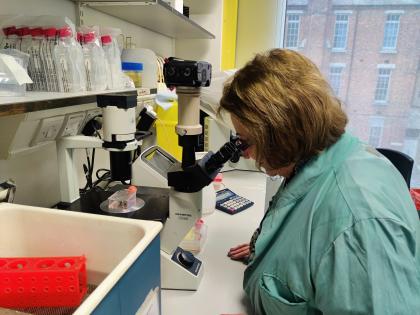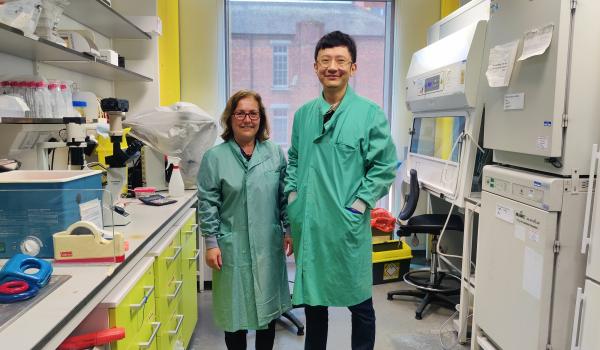Led by Professor Sadaf Ghaem-Maghami at Imperial College London, this three-year project will collect new pre-clinical evidence of a potential immunotherapy agent – exploring the potential to accelerate its clinical use for anyone living with ovarian cancer.
High grade serous ovarian cancer (HGSOC) is the most common form of epithelial ovarian cancer. In the UK, it's responsible for over six in every 10 cases of epithelial ovarian cancer. This is why research into new and kinder treatments is so important to ensure that more people can live better for longer.

Why immunotherapy?
The immune system is our first defence against cancer. However, cancer cells can evade this defence sometimes due to a mutation that stops the body’s immune system from having any effect on them. Immunotherapy is a type of treatment that can improve the immune system's response and has been hugely successful in practice for the treatment of certain cancers.
Unfortunately, because HGSOC tumours often have mutations that suppress the body’s natural immune response, researchers have not yet been able to find an immunotherapy that works well.
What is the intended outcome of this research?
Professor Ghaem-Maghami’s research has already identified a number of mutations in HGSOC tumours that could suppress the immune system's response. For example, mutations of a protein called DCAF15 reduce the killing-effect of immune cells - and over half of HGSOC tumours have these mutations.
This new project will develop new models to learn more about the role of DCAF15 in ovarian cancer and ways to improve immune response and limit tumour growth – taking us a step closer to developing an effective immunotherapy for ovarian cancer in the future.

Professor Sadaf Ghaem-Maghami, principal investigator, said:
Many patients have hugely benefited from novel immunotherapies in the recent years, but unfortunately this has not been the case for ovarian cancer. We're working to identify and overcome the biological processes that prohibit ovarian cancer from being responsive to immune related therapies. Discovering new therapies for ovarian cancer, that provide women real options, in particular the option of using the immune system for destruction of cancer cells, is crucial at this time. This funding from Target Ovarian Cancer will help us get much closer to achieving this goal.

Annwen Jones OBE, Chief Executive of Target Ovarian Cancer, said:
We fund research that furthers our understanding of this devastating disease and paves the way for new treatments. High grade serous ovarian cancer is the most common form of ovarian cancer, and this project will help us to understand one of the mutations that affects half of these tumours. Different ovarian cancers have many different genetic mutations and researchers need to understand these to unlock new treatments. This project could provide a new target for immunotherapy which could provide hope for many of those affected by ovarian cancer.
Target Ovarian Cancer funds pioneering research to stop ovarian cancer devastating lives. The projects we support are working to improve outcomes and find better, more personalised treatments – helping provide hope for the future.
Find out more about our other funded projects across the UK.



